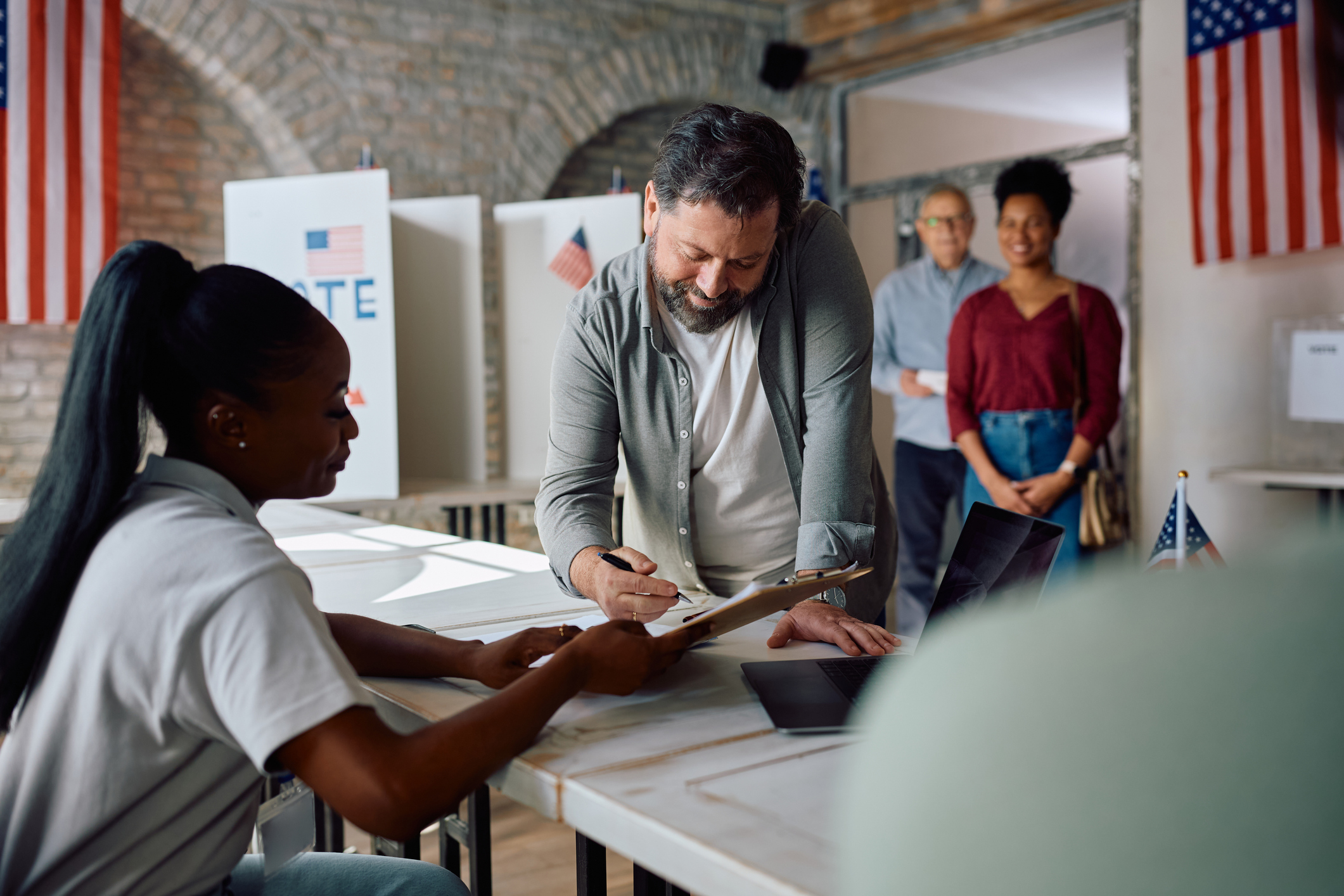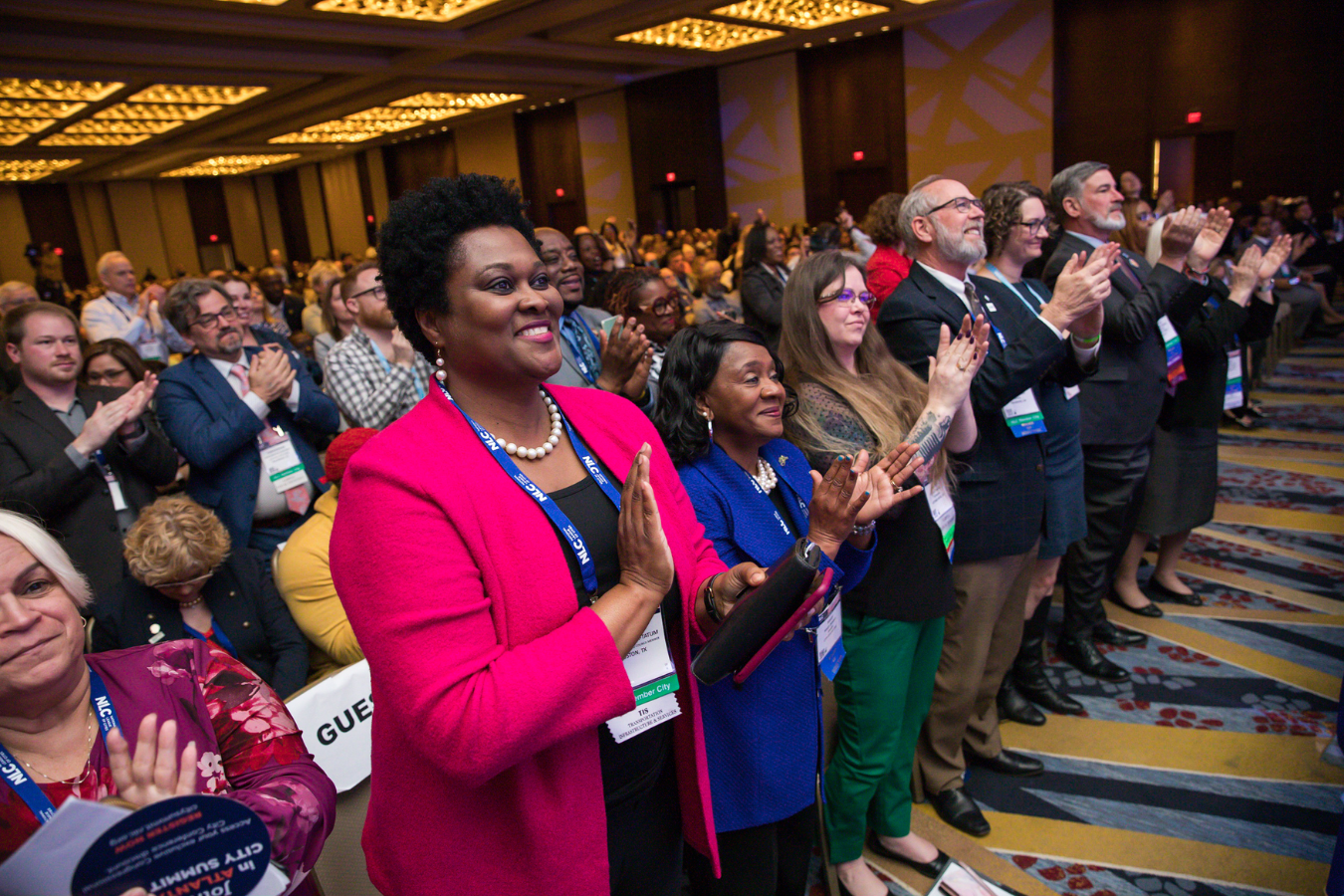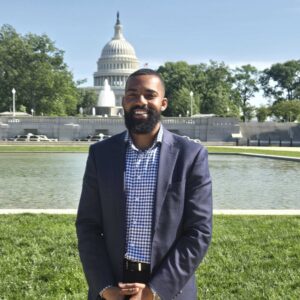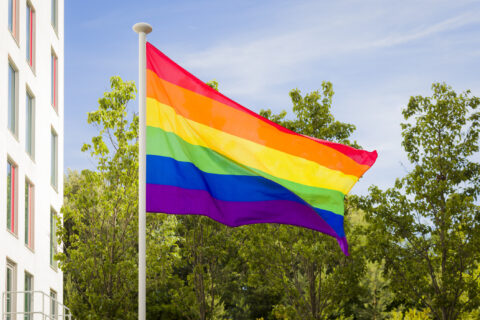As November 2024 approaches, many local leaders and their municipalities are working to prioritize civil discourse and strong engagement in the democratic process throughout this election cycle.
During the November 2020 presidential election, research by the Bridging Divides Initiative found that threats and harassment against local officials spiked. Researchers found that these threats against election officials are also more frequent in states with contested elections and election denial activism. Currently, 2024 is expected to surpass 2023 in total number of threat and harassment events.
The impacts of incivility and harassment can take many forms for local leaders, residents and their communities, and US democracy. Verbal and physical harassment against local government officials can cause physical and psychological harm and can ultimately turn our residents away from running for public office or joining the municipal workforce — which continues to rebound from significant labor shortages. Political incivility can have strong implications on US democracy by deterring individuals, and especially minorities, away from public office due to threats against personal safety. This harassment against local officials is often related to political polarization, pushback against inclusive political participation and the spread of misinformation and disinformation online.
Safety at the polls for voters and election officials is also important when addressing inclusive political participation. Election workers reported experiencing similar or more levels of harassment compared to the 2020 election, with 38 percent reporting threats, harassment or abuse. Voters are protected by state and federal law from threats or intimidation at the polls. As the election approaches, opportunities to improve civil discourse between residents and their local leaders can strengthen our democracy through safe and secure political participation.
In August 2024, NLC conducted a member survey to learn about the current environment of verbal and physical harassment against local officials. NLC’s survey results follow similar findings to other studies on harassment and threats against local officials. The survey found local elected officials and municipal employees widely experience political incivility and the harassment they face has worsened over time.
NLC’s 2024 Incivility Survey Results
NLC’s most recent survey on civility provided updated findings to NLC’s 2021 “On the Frontline of Today’s Cities: Trauma, Challenges and Solutions” brief. The 2024 data show that political incivility is a common occurrence across the country for municipal leaders. Across the 256 survey responses from mayors, city council members and city managers, 73 percent reported personally experiencing harassment due to their public roles.
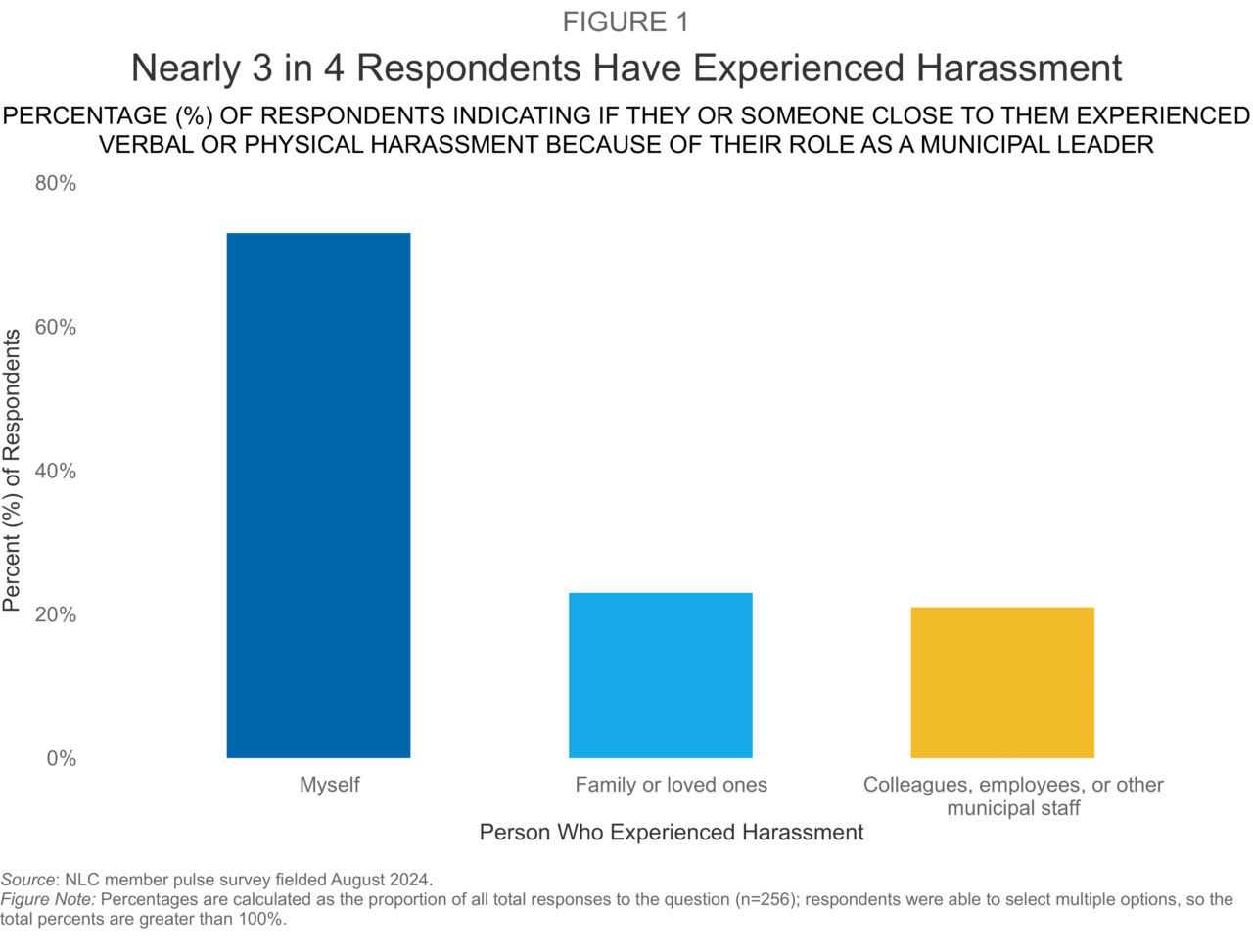
Of those who experienced harassment, 89 percent experienced harassment on social media in 2024 compared to 79 percent in 2021. Additionally, 84 percent experienced harassment during public city meetings in 2024 compared to 64 percent in 2021.
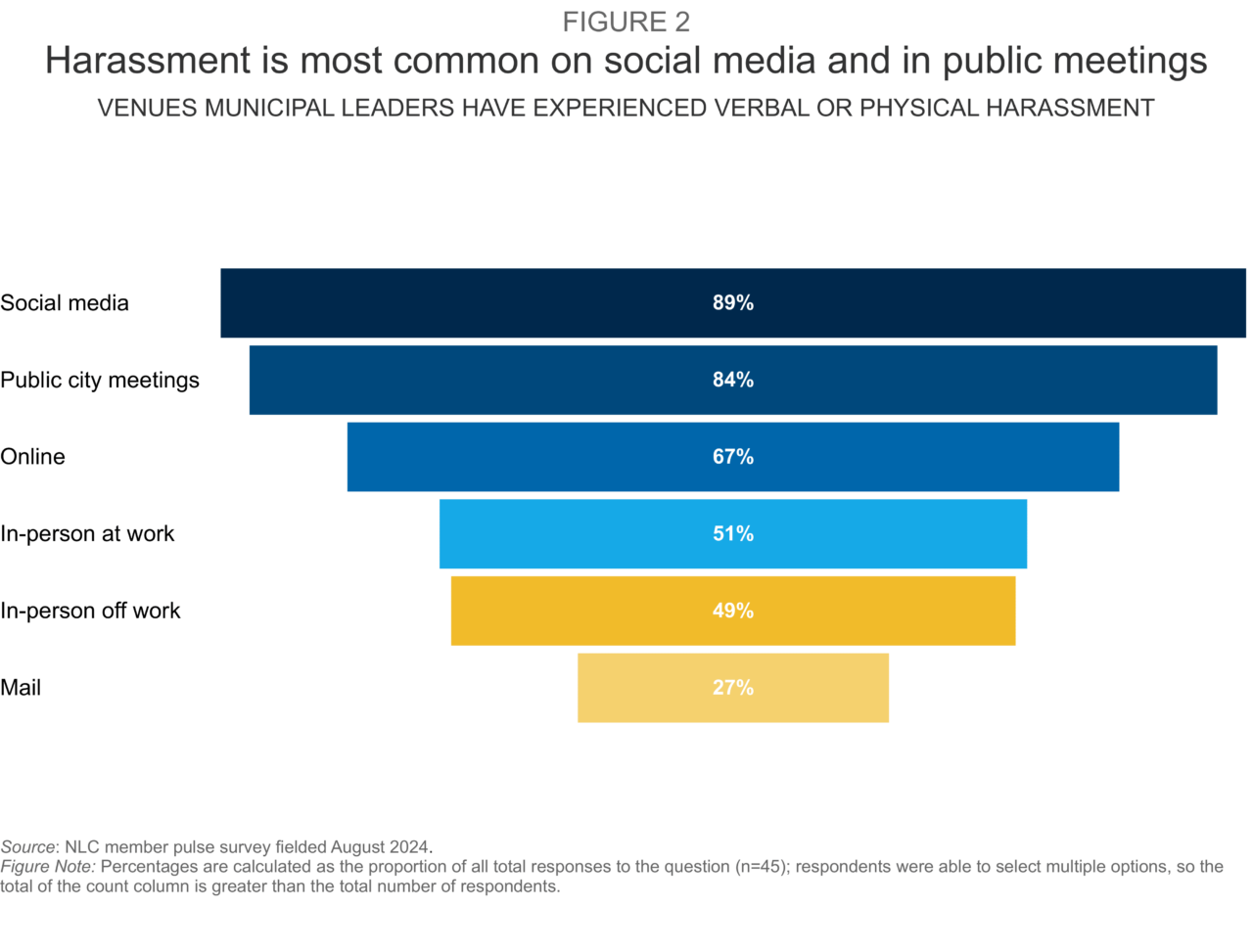
Respondents also identified that harassment has worsened over time and there is a need to address the rise in harassment. Almost 60 percent of respondents feel political harassment has worsened since they entered office. Only 20 percent of respondents reported that their local government has a plan in place to address incivility in their community compared to 60 percent of respondents who identified the need for a plan despite one not being in place.
Promoting Civility with the Upcoming Election
Because of the impacts incivility has on American democracy and outcomes from harassment against public officials, local officials and local governments may consider ways to improve local civility in the face of high polarization and an upcoming November election. The following resources may include promising practices on reducing election-related harassment, including resources from some of our colleagues at State Municipal Leagues:
- US Election Assistance Commission: Election Official Security
- Bridging Divides:
- National Civic League: The All-America Conversations Toolkit
- National League of Cities: Threats to Elections are on the Rise, but Help is Available
- Committee for Safe and Secure Elections: Resource Guides
- Colorado Municipal League:
- League of Minnesota Cities: Taking the Lead – How City Officials Can Promote Civility
More NLC Resources
On the Frontlines of Today’s Cities: Trauma, Challenges and Solutions
While more than 8 in 10 surveyed local officials have experienced some form of harassment, threats and violence, fewer than half work in an office with a strategy to handle these incidents. NLC’s report sheds light on the impact felt by local officials and their communities across the country and offers a three-pronged approach to help keep them safe from threats, while maintaining their mental and physical wellbeing.
